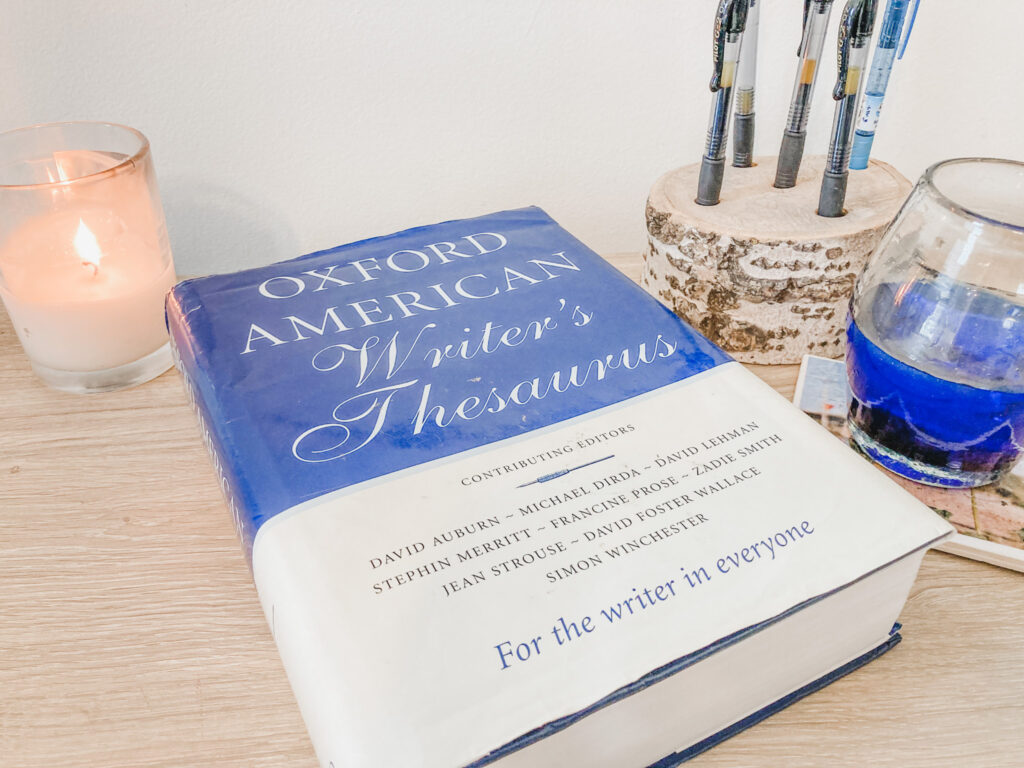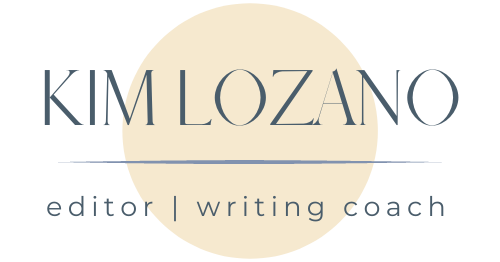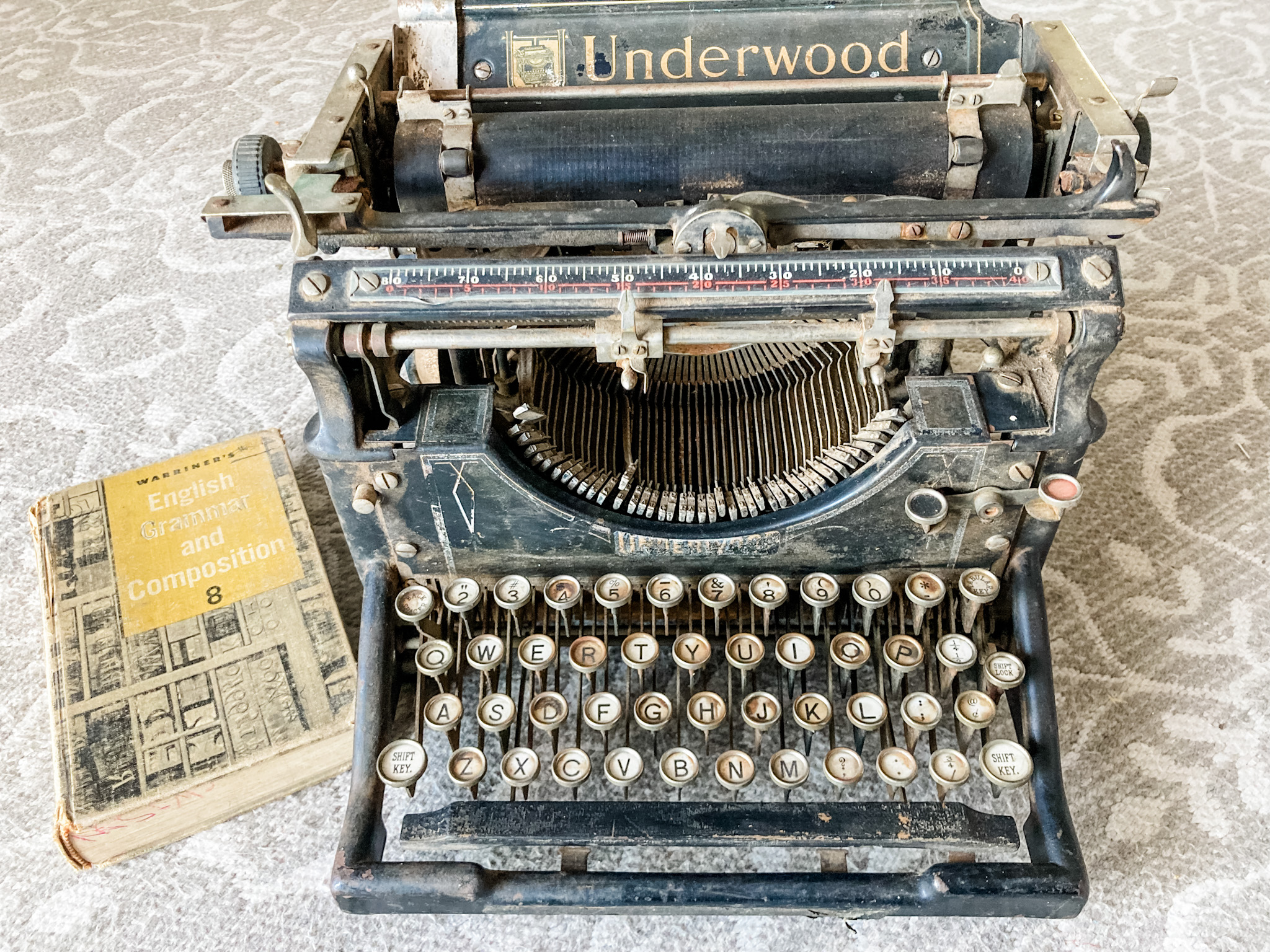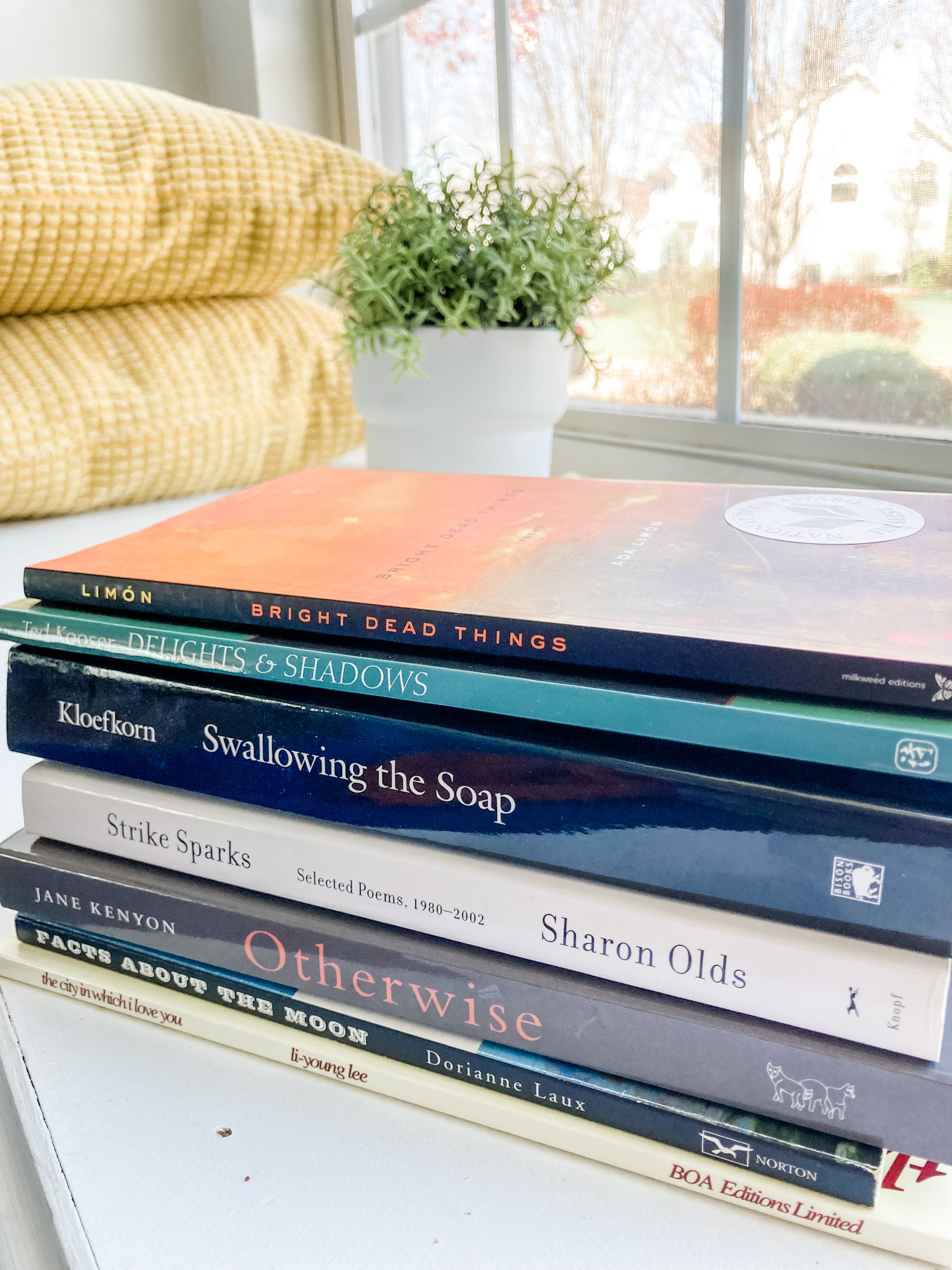A Brief Defense of Using a Thesaurus (in which I disagree with Stephen King)

You may not even know that the humble thesaurus comes under attack, but it does. The topic arose this week when a writer tweeted a question asking other writers how they feel about using a thesaurus.
Almost everyone who responded said they were down with them and why. But someone reminded me who it was who’d stirred up some trouble on the topic—America’s beloved Stephen King. King of horror, king of the bestseller list, king of my 7th-grade nightmares, king of kings when it comes to most-respected-advice-giver in internet writing forums.
I started thinking that maybe some of you had run across his instruction and might have become insecure about your reference book habits. Well, let me tell you—you are fine.
I do think Stephen King’s On Writing is a good book on writing. Not my very favorite craft book, but good. And I know he talks about thesaurus usage in this book but I couldn’t find the reference (would it have killed anyone to have added a table of contents or index?).
But here’s what keeps getting spread around—from his famous 1988 essay “Everything You Need to Know About Writing Successfully—in Ten Minutes”:
Never look at a reference book while doing a first draft
You want to write a story? Fine. Put away your dictionary, your encyclopedias, your World Almanac, and your thesaurus. Better yet, throw your thesaurus into the wastebasket. The only things creepier than a thesaurus are those little paperbacks college students too lazy to read the assigned novels buy around exam time. Any word you have to hunt for in a thesaurus is the wrong word. There are no exceptions to this rule.
In his defense, the heading does specify “while doing a first draft.” I wouldn’t argue against that (or for it). But throwing the “creepy” thing away means it won’t be there for you in revision. It’s clear he’s not a fan. And his last two sentences aren’t true.
Just yesterday I was working on a story and I could not remember what a person being driven around in a car was called. An occupant? A rider? I turned to my thesaurus and “passenger” was the obvious word I was looking for. I have days where my brain just doesn’t come up with the right word when I need it. Not a fancy alternative word, but the simple word that most people would use.
Sometimes I go to my thesaurus when I’m working with a particular point-of-view character and I’m trying to capture their diction. I might have come up with a functional word, but I know there might be another way this character would say it. Instead of saying a situation is “charged,” she might say it’s “fraught.” When I was growing up—a non-fancy, rural Oklahoma and Kansas upbringing—the couch was called the “divan.” The thesaurus reminds us that there are options. First word best word is not always truth.
Now, if you’re digging into your thesaurus just to find bigger and more complex words when a simple word will do, if you tend to go hunting for all kinds of creative modifiers to fancy up your sentences, you should go google “purple prose.” I think this is where the criticism comes from. Sure, we should avoid basic pitfalls like overwriting and cliché. But let’s not throw the baby out with the bathwater. Ahem.
Really, we’re talking about learning to write better sentences. That means choosing better words. That means that, sometimes, lots of times, you’ll need that dictionary and your thesaurus.







Totally agree Kim. Love the satisfaction of finding the most appropriate word!
Indeed!